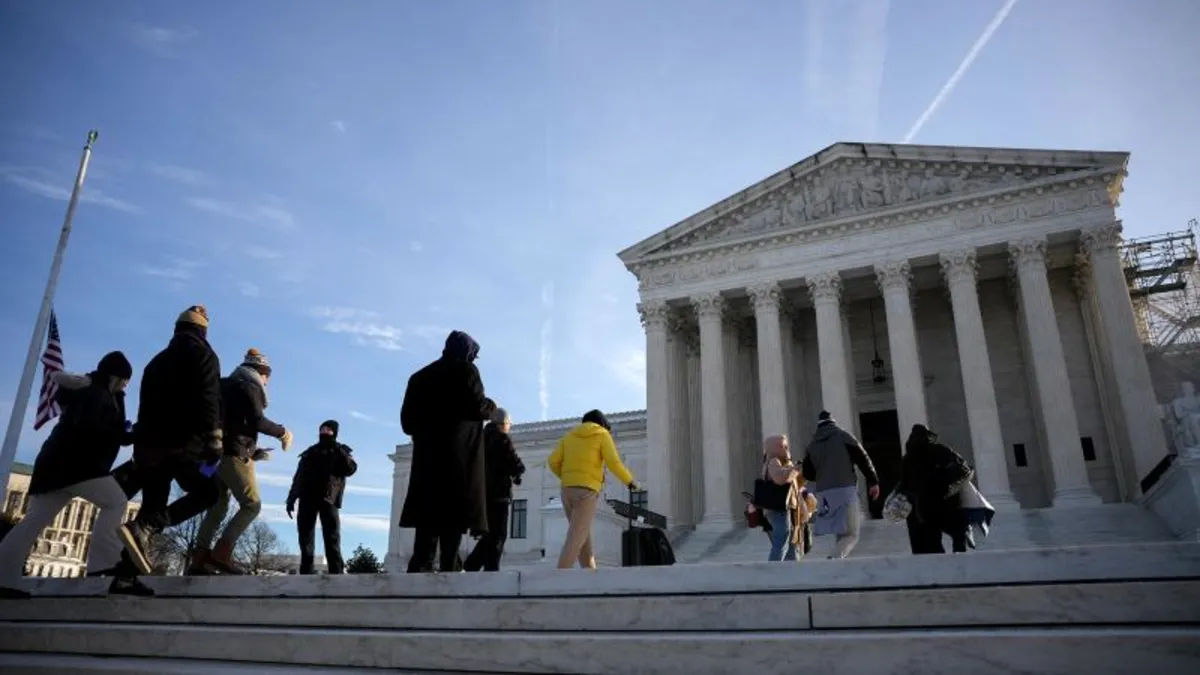
The Supreme Court on Friday halted President Donald Trump's attempt to immediately dismiss the head of an independent agency responsible for investigating whistleblower claims. This decision allows Hampton Dellinger to retain his position at least until the middle of next week.
By refusing Trump's emergency appeal, the conservative court effectively sided with Dellinger, who was appointed by President Joe Biden in 2024 to lead the Office of Special Counsel for a five-year term. However, White House officials had fired him via email shortly after Trump's return to power.
The Dellinger appeal is the first to reach the Supreme Court amid a wave of litigation following Trump's recent return to the White House. This includes cases involving executive actions, immigration, other dismissals, and Elon Musk's government work, all currently progressing through lower courts.
In an unsigned order, the court decided to pause the case until February 26, when a lower court's temporary order is set to expire. A district court hearing is scheduled to consider whether to extend the pause on Dellinger’s dismissal.
The court's decision left several questions unresolved, indicating the issue may soon return to the Supreme Court. Four justices—two liberals and two conservatives—dissented from the decision. The technical question at hand was whether the lower court's temporary order to pause Dellinger’s dismissal should be blocked. The Supreme Court's decision did not resolve this, essentially delaying a final ruling.
Steve Vladeck, a CNN Supreme Court analyst and professor at Georgetown University Law Center, commented, “The best explanation for why a majority of the justices opted to put off a ruling in this case for now is because of a concern that they’d otherwise open the floodgates to dozens of emergency requests.”
Conservative Justices Neil Gorsuch and Samuel Alito dissented, arguing that the district court overstepped its boundaries. Gorsuch expressed that he would have directed the district court to revisit its temporary order. Meanwhile, liberal Justices Sonia Sotomayor and Ketanji Brown Jackson indicated they would have denied the government's emergency request but did not elaborate on their reasoning.
After the ruling, Dellinger stated, “I am glad to be able to continue my work as an independent government watchdog and whistleblower advocate.”
The case raises fundamental questions about Trump's authority to dismiss potential critics under federal law's for-cause removal protections. The Office of Special Counsel is distinct from special counsels appointed for politically sensitive investigations. Instead, it addresses whistleblower retaliation claims made by federal employees.
The director of the White House Presidential Personnel Office fired Dellinger on February 7 without citing the required for-cause reasons, as per court records. The litigation's outcome could significantly impact Trump's ability to control independent agencies such as the Federal Trade Commission and the Federal Reserve.
A group of law professors has urged the Supreme Court to ensure that the Federal Reserve remains insulated from the outcome of Dellinger’s case, warning of potential negative economic consequences.
A federal district court issued a temporary restraining order blocking Trump's enforcement of Dellinger’s dismissal, allowing time for the case to be considered. Although such orders are generally not appealable, the Justice Department under Trump appealed, arguing it was an “unprecedented assault on the separation of powers.”
In a 2-1 decision, the US Court of Appeals for the DC Circuit ruled the temporary order was not appealable. The majority judges in this decision were appointed by former President Joe Biden, while a dissenting judge, appointed by Trump, favored blocking the temporary order.
This story includes contributions from CNN’s Katelyn Polantz and has been updated with additional details.